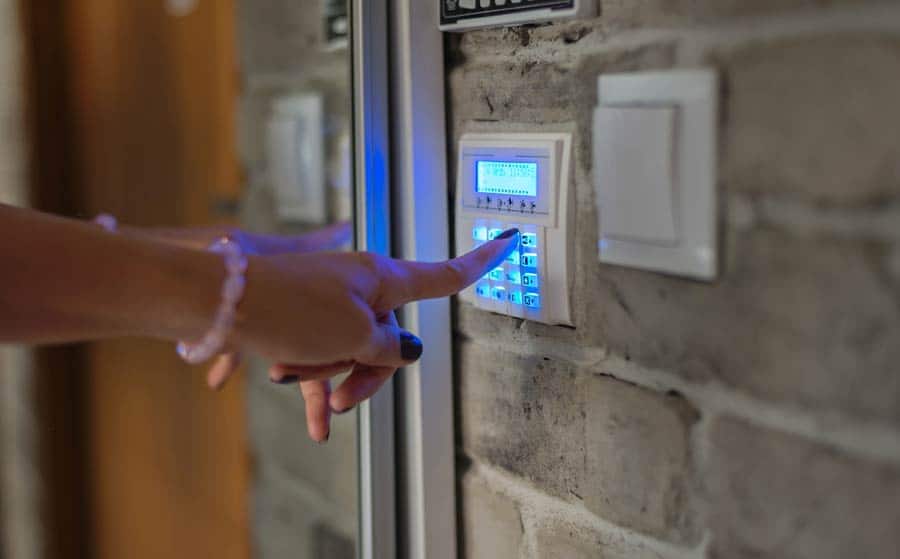In California, burglary can be defined in two ways. First-degree burglary is also called residential burglary. Second-degree is also called commercial burglary. Burglary in general is when a perpetrator enters a building unlawfully with the intent to commit a theft or another felony.
Residential Burglary
Residential burglary applies when the burglary occurs at any inhabited structure. This includes houses, apartments, trailers, and even boats. Essentially, if the purpose of the building is to be a residence, it can be considered a residential burglary. In all cases, residential burglary will be charged as a felony and will count as a strike under California’s three-strike law. Punishment can be anywhere up to 6 years in prison.
Commercial Burglary
Commercial burglary is any burglary that does not fall under the categories listed for residential burglary. However, commercial burglary does not have to be charged as a felony. It is considered a “wobbler” charge, which means it can be charged as a misdemeanor or a felony. An officer will recommend what charges the crime should be filed as, but ultimately, the District Attorneys’ office decides. Like the police, an alleged victim can also recommend the type of charge, but it’s up to the District Attorney whether it will be filed as a misdemeanor or felony.
When charged as a misdemeanor, the punishment may be up to one year in jail. When charged as a felony, it can come with a penalty of up to three years in prison. It is important to remember that nothing has to be stolen, or a felony does not have to be committed. Someone entering a building intending to commit such crimes may be charged with burglary.
Penalties for Residential and Commercial Burglary
The penalties for first-degree burglary are more severe since it involves invading a space where people live. It must be charged as a felony and can come with a prison sentence of two, four, or six years. It can also come with a fine of up to $10,000. By law, someone convicted of residential burglary will be sentenced to prison. However, there are rare cases when the court can decide that the perpetrator should be granted probation in the best interests of justice. A conviction must also come with a strike towards the three strikes law.
For second-degree burglary, the penalty will depend on whether the offense is charged as a felony or a misdemeanor. As a misdemeanor, the most the accused can get is a one-year jail sentence and a $1,000 fine. For a misdemeanor, there is no requirement for them to have jail time. As a felony, the penalty can be up to three years in prison and up to a $10,000 fine.
Shoplifting Compared to Burglary in California
In the past, going into a store to steal something was considered second-degree burglary, no matter what was stolen. However, Penal Code 459.5, in 2014, stated that if the amount stolen is under $950, it will not be considered burglary. That way, someone shoplifting under that amount can be charged with a misdemeanor. However, some prior convictions will cause an accused to be charged with a felony, even if the amount is under $950.
For example, consider a person who goes into a convenience store. They may try to steal money from the register when the cashier’s back is turned. If the amount were under $950, it would be charged as shoplifting, even though they stole money instead of merchandise.
Defenses to Burglary
Whether it’s commercial or residential, there are several possible defenses. For example, they could claim that the accused was never on the property that had been burgled or that they had no intention of committing a theft. They could say that the building was not inhabited or that the crime was something else, such as shoplifting, instead of burglary. They may even be able to claim that the entire situation was a mistake.
An example of a successful “no entry defense” involves a suspect who used a stolen ATM card. They used the card at an ATM on the outside of the building. Since there was no entry into the structure, the judge ruled it could not be considered a burglary. No entry was made; therefore, burglary could not apply.
In another case, a defendant had stolen two checks valued under $950. This crime was initially charged as a felony but was reduced by the court. The determination was that each check was considered a theft under $950, and the accused was convicted of misdemeanor charges instead.
Now that you know the basics of commercial and residential burglary, do not take chances yourself. If you are charged with either first-degree burglary or second-degree burglary, contact an experienced criminal defense attorney to help with your case. They will fight for your rights and get you the best possible outcome for your case.

